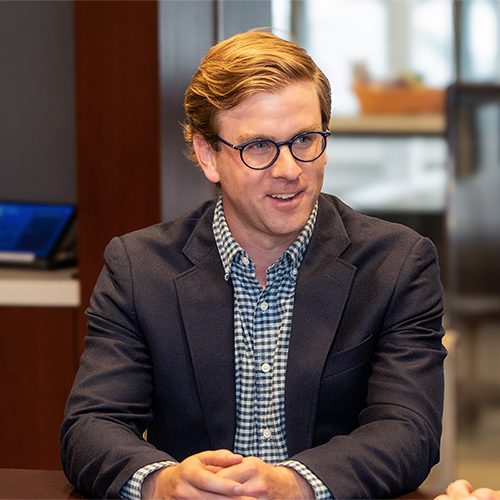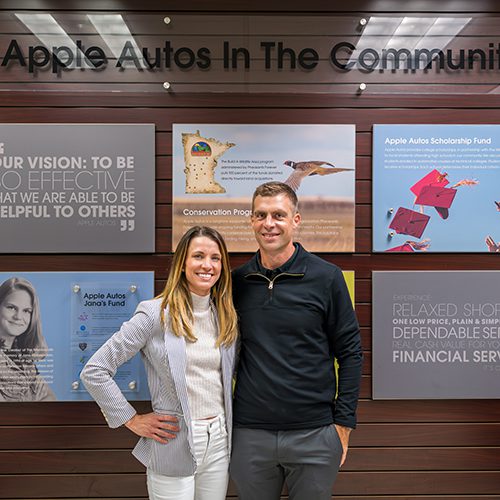A Company’s Path to Giving
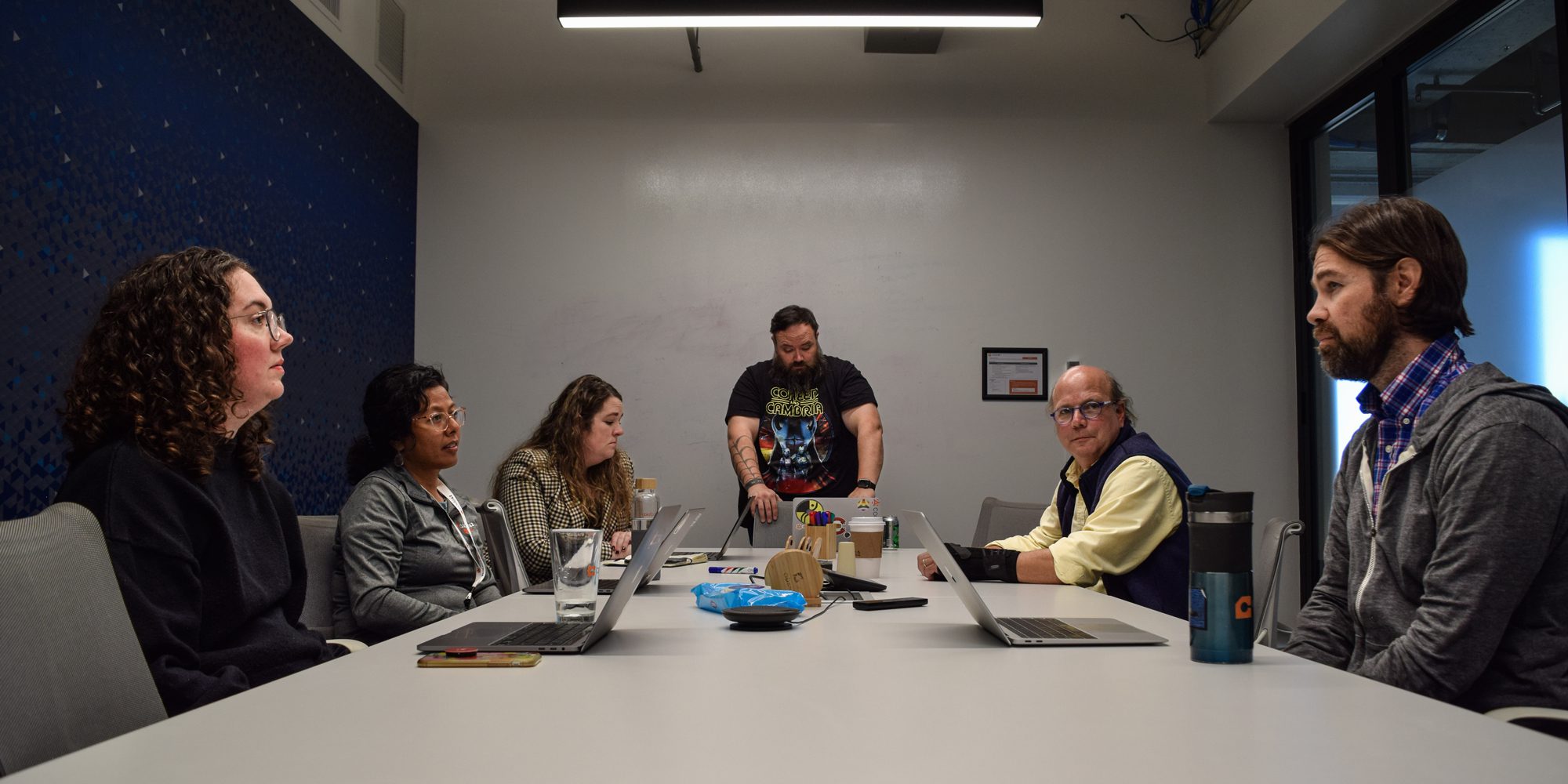
For nearly 20 years, Code42 has been safeguarding the ideas of the most innovative organizations. In 2016, shortly after newly appointed CEO Joe Payne took over, he had a vision for the company to bring to life their core value of leaving the world a better place.
Code42 implemented the Pledge 1% commitment, a global movement that encourages companies to integrate giving back into the core of their business. Through Pledge 1%, Code42 committed to giving back to the communities where its employees live and work by donating 1 percent of profits each year when the company is profitable, 1 percent of equity through founder and employee donations, and 1 percent of employee time through paid time off for volunteering.
That’s how the Code42 Foundation got started.
Code42 knew they wanted to leave a charitable legacy that would outlast the company–and their leaders and founders agreed. “Corporate giving is an integral part of our culture,” said Joe Payne, Code42’s president and CEO. “That is why we created the Code42 Foundation and implemented the Pledge 1% model.” With that in mind, they made it clear that the foundation should be guided not by executives, but by all employees.
The company recruited volunteers to form a committee and come up with a plan. At first, “We were in this nascent state,” said Tom O’Brien, Code42’s Director of Product Operations and current chair of the Code42 Foundation. “We were all new to building a foundation and we had very little established process. But the founding members of the committee were passionate about the opportunity and built an incredible mission statement and giving charter that gave us a north star to point to.”
Code42 needed a partner who could help them build some structure around their goals and advise them on grantmaking in the Twin Cities, where most of their employees worked.
“The Minneapolis Foundation is the best game in town for that,” Tom said.
“I’m proud of the maturity that we’ve gained over the past few years, and I attribute a lot of that to the Minneapolis Foundation.” — Tom O’Brien, Code42 Foundation Chair
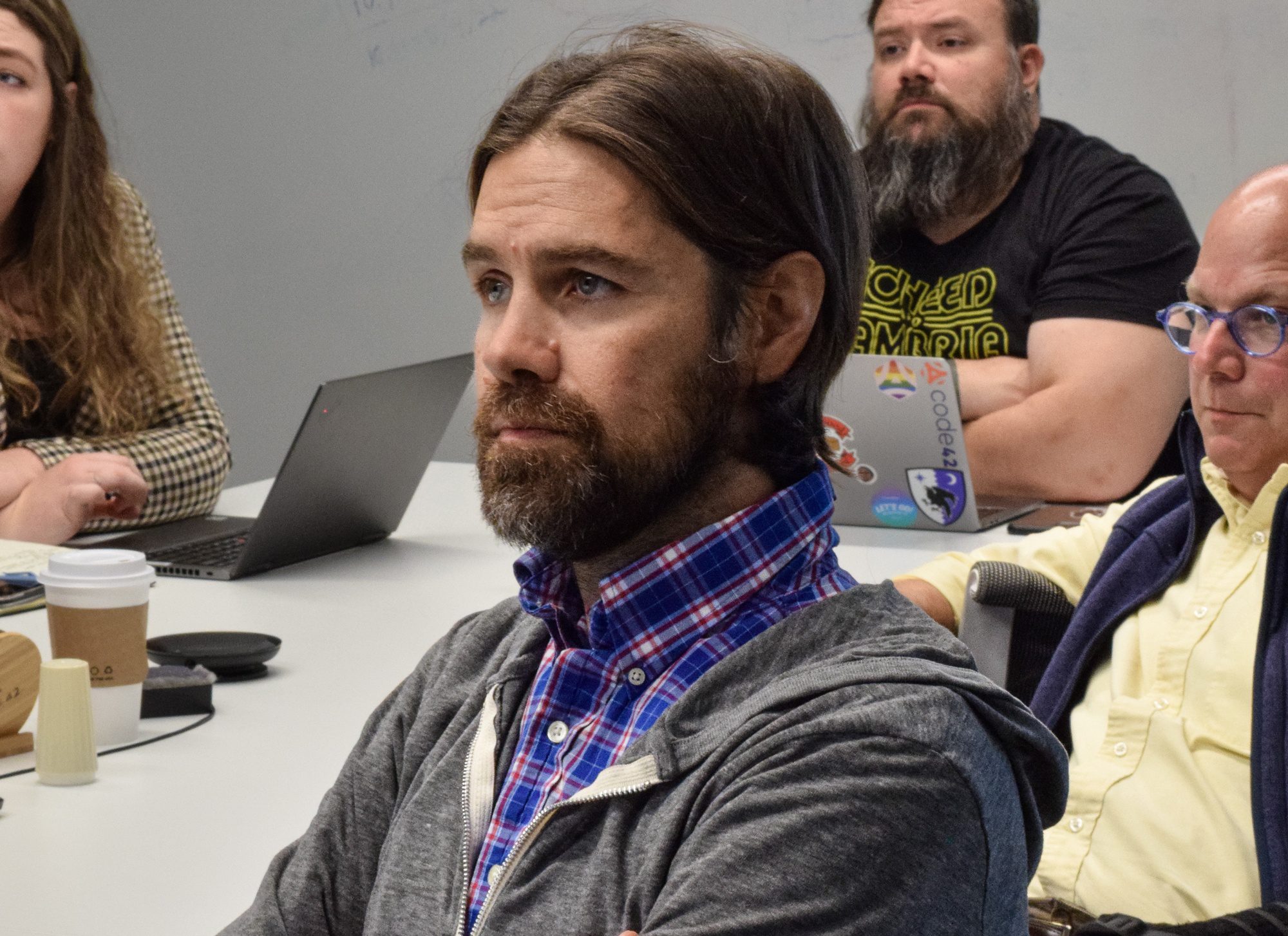
With the Foundation’s help, they got to work.
“Code42 has been very intentional about working with us to design philanthropic programs that can grow to support their long-term goals, while also creating a variety of pathways for their employees to be charitable today,” said Christine Empanger, a Philanthropic Advisor Associate at the Minneapolis Foundation. Christine works closely with the Code42 Foundation committee to research their interest areas, curate lists of organizations that align with their giving priorities, and facilitate conversations that help the committee stay aligned with its mission and impact goals.
Early on, the company established a policy giving every employee two days off a year to volunteer in any way they choose, whether by packing boxes at a food shelf, serving as an election judge, or picking up trash in a local park.
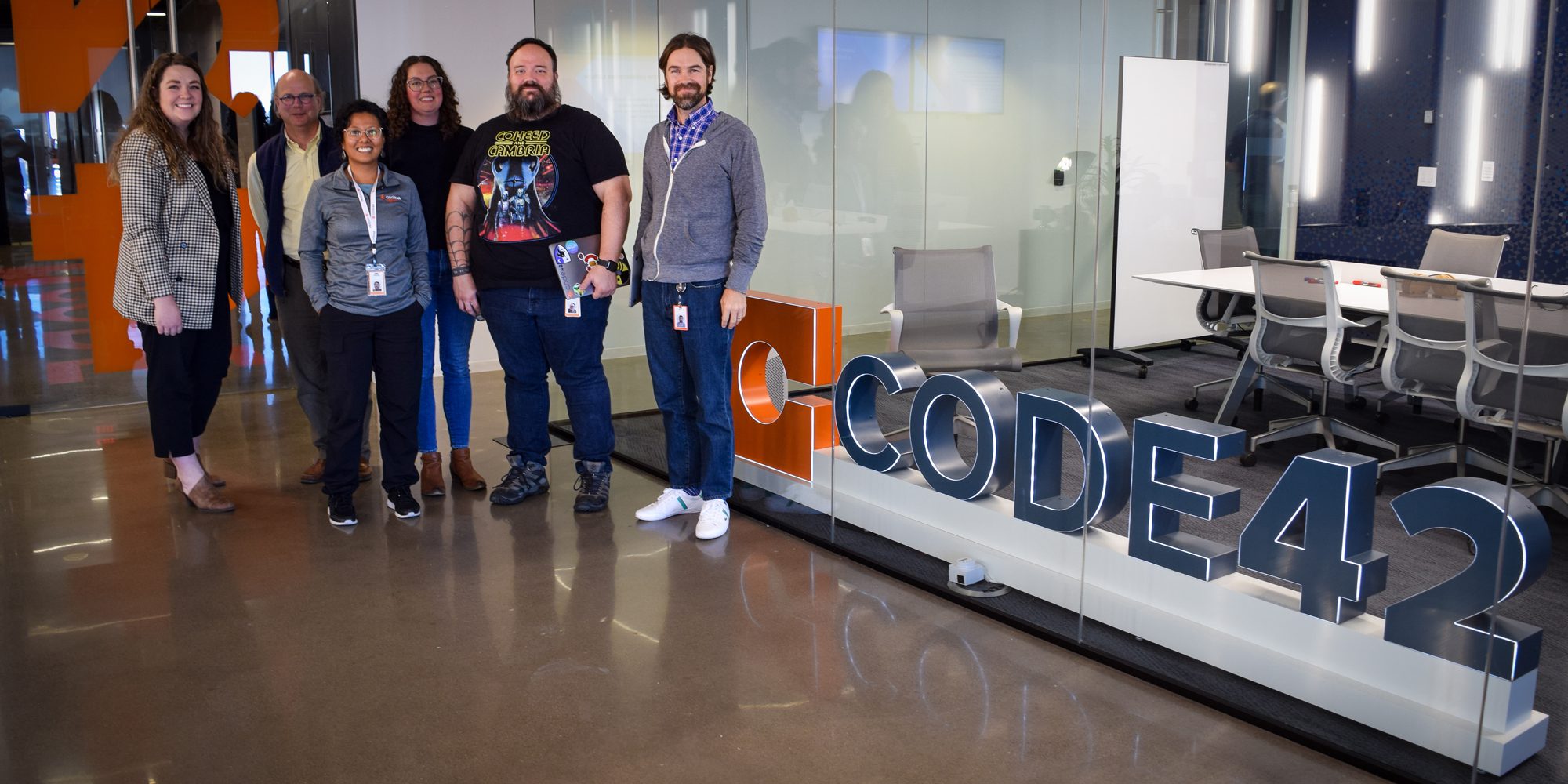
Members of the Code42 team at their headquarters with Bill Sternberg and Christine Empanger of the Minneapolis Foundation.
“With our volunteering, we can focus on the immediate needs of the community,” Tom said. The Code42 Foundation is designed to complement those efforts by addressing long-term issues. As Tom put it, “What can we do to put money back out into the community in a way that will disrupt the systems that perpetuate inequities?”
Today, the Code42 Foundation has several grantmaking programs. One matches donations of up to $100 that employees make to charities of their choice. Another invites them to recommend larger grants to organizations that are near and dear to their hearts, and which also align with the Code42 Foundation’s mission.
Deep Thought Grants
At the heart of the Code42 Foundation is the Deep Thought Grant, awarded every year to a Minnesota organization doing transformative work to advance equity. Most recently, the foundation supported All Square, a nonprofit social enterprise that invests in innovative programs and ideas for people disproportionately affected by mass incarceration.
“Employment is incredibly important, and yet it is often denied to people who have been incarcerated. Without a job, you’re not paying rent, you’re not providing for your family, and that economic exclusion drives generational poverty and can influence recidivism.” — Molly Hickey, Code42 Foundation committee member
“All Square meets that immediate need for employment, but they also are working to disrupt the way that our criminal legal system works, how we punish and rehabilitate people, how we think about criminality,” Molly said. “Their Prison-to-Law Pipeline, which they just launched, is a great example of how they are working with the people who are most directly affected by the law and helping them join the legal profession.”
The company loves All Square’s ability to think outside the box, Tom said. “It maps with our idea of how we approach technology and our own work,” he added. “We’re thinking about insider risk management for large-scale organizations in a completely different way than anyone ever has, and so I think we’re drawn to organizations that are doing things in a groundbreaking way and saying, ‘We’re just going to break this whole thing apart and try something new.’”
To learn more about All Square, check out the video below.
A Generous Workforce
Code42 hasn’t yet had a major stock liquidity event, which means the 1 percent of equity that its founders have pledged to charity hasn’t yet been realized. When that happens, though, the Code42 Foundation could suddenly receive a large infusion of charitable assets. For that reason, the committee guiding the Code42 Foundation was initially most concerned about setting up infrastructure that would prepare the company for significant philanthropy in the future. When it first got started, the Foundation didn’t have a recurring source of gifts. “The first Deep Thought grant we did was from a $10,000 gift from our HR department’s budget,” Tom said.
Code42’s employees changed that. After coming up with the concept for Deep Thought Grants, the committee tested it and shared it with their peers across the business. The enthusiastic response blew them away.
“It’s been much more successful than we ever imagined,” Molly said.
Thrilled, the committee tapped into that excitement. Today, employees have held several silent auctions, and 20 percent of them give to the Foundation through payroll deductions.
Since the employees driving the Code42 Foundation first came together, “We’ve grown into a pretty well-established committee that has good governance and the appropriate level of process,” Tom said. “I’m proud of the maturity that we’ve gained over the past few years, and I attribute a lot of that to the Minneapolis Foundation. Without that guidance, we’d still be wallowing around in startup mode.”
“Don’t be afraid to try.”
That’s the advice Tom would give other companies that are looking to expand their giving.
“Something is better than nothing. Get started, and then test and iterate,” he said. “Especially with a partner like the Minneapolis Foundation, refinement and efficiency will come.”
